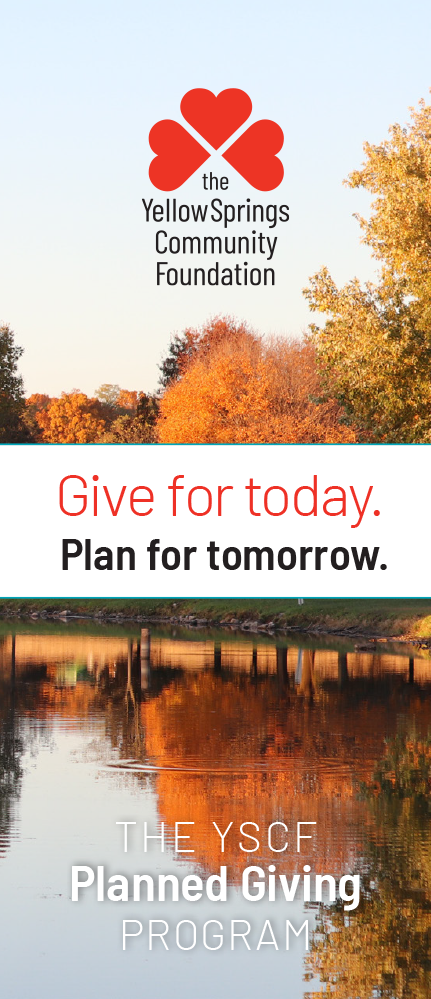Many people choose to share with local causes and organizations by donating through the Yellow Springs Community Foundation.
This type of gift is very helpful and deeply appreciated; planned giving for the future is another way to have a positive impact on both the Foundation and your favorite nonprofits.
Whether your plans involve sharing now or with a legacy gift in the future, the Yellow Springs Community Foundation is here to help. We have been supporting donors and local nonprofits to build an extraordinary community since 1974. Entrusted with the responsibility of enhancing community life, we are a resource for local charitable giving.
If you’ve been considering a legacy gift, want to make a pledge, or would like to learn more about the process, please contact us or call 937-767-2655. Complete this form online or send it to YSCF, PO Box 55, Yellow Springs, OH 45387.
To see options, please visit our Donate page.
Giving for Tomorrow – Planned Giving
The many ways in which to give for the future are known as Planned Giving. Most commonly these are deferred gifts that come to the charity following the death of the donor. Mostly, such gifts are given through a legal instrument or contract.
Choosing from the array of Planned Giving options often allows you, the donor, to make the most of your charitable intent, and often to be more generous (and thereby derive more satisfaction) than you may have thought possible.
A Planned Gift may be funded with cash, securities, insurance policies, real estate, personal property, or other assets. In all cases, we recommend that you consult with your financial, tax, and/or legal advisors when considering such a gift. The Foundation will decline to act as trustee in trust agreements.
Testamentary Bequest. One of the best known and easiest ways to provide a future gift to your community is by naming the Foundation or a specific charity in your will.
Life Insurance. Often overlooked as a funding asset, life insurance provides a variety of funding opportunities. These include making an outright gift of a policy to your charity; naming the charity as a primary, secondary, or contingent beneficiary; and making the charity owner and beneficiary of the policy (premium payment becomes tax deductible).
Life Income Gift Plans provide an income for life to the donor and/or another beneficiary. Federal income tax regulations provide a deduction for a portion of the gift value. If the gift is funded with appreciated securities or real estate, capital gains tax is reduced or eliminated. Upon the death of the last beneficiary, the remainder of the gift goes to the designated charity(ies). The amount of income mostly depends upon the value of the gift and the age of the payment recipient(s) when the gift is made. The older the recipient(s), the larger the payment. Each gift plan has its own specific set of legal requirements as to the form of the agreement, taxation of income, tax reporting requirements, charitable deduction rules, and investment choices.
The Deferred Payment Gift Annuity is appropriate for the younger donor who wishes to defer income payments until a later date. It can provide a large tax deduction at the time of asset transfer, and a supplementary retirement income later.
The Charitable Remainder Annuity Trust (CRAT) is a trust agreement that provides a fixed income to one or more beneficiaries, the amount of income based on the initial value of the trust assets. The donor must designate a trustee. After the initial transfer of assets, no additional contributions can be made to a CRAT. If the invested annuity trust assets produce more total income than needed to pay the annuity, the excess is added to the principal. Likewise, if total income is less than required to meet the annuity payment, the difference must be taken from the trust principal. The taxation of income depends on the type of income earned and accumulated by the trust, and is based on a four-tier hierarchy of ordinary income, capital gain income, tax exempt income, and principal.
The Charitable Remainder Unitrust (CRUT) has many features in common with a CRAT, with some important differences that include a variable income, equal to a fixed percentage of the fair-market value of the fund assets, recalculated annually. Also, additional contributions can be made to a CRUT.
Real Estate. Should you consider a gift of real estate, we will be happy to discuss such plans with you. Every situation is unique, and no general rules apply to gifts of real property.



